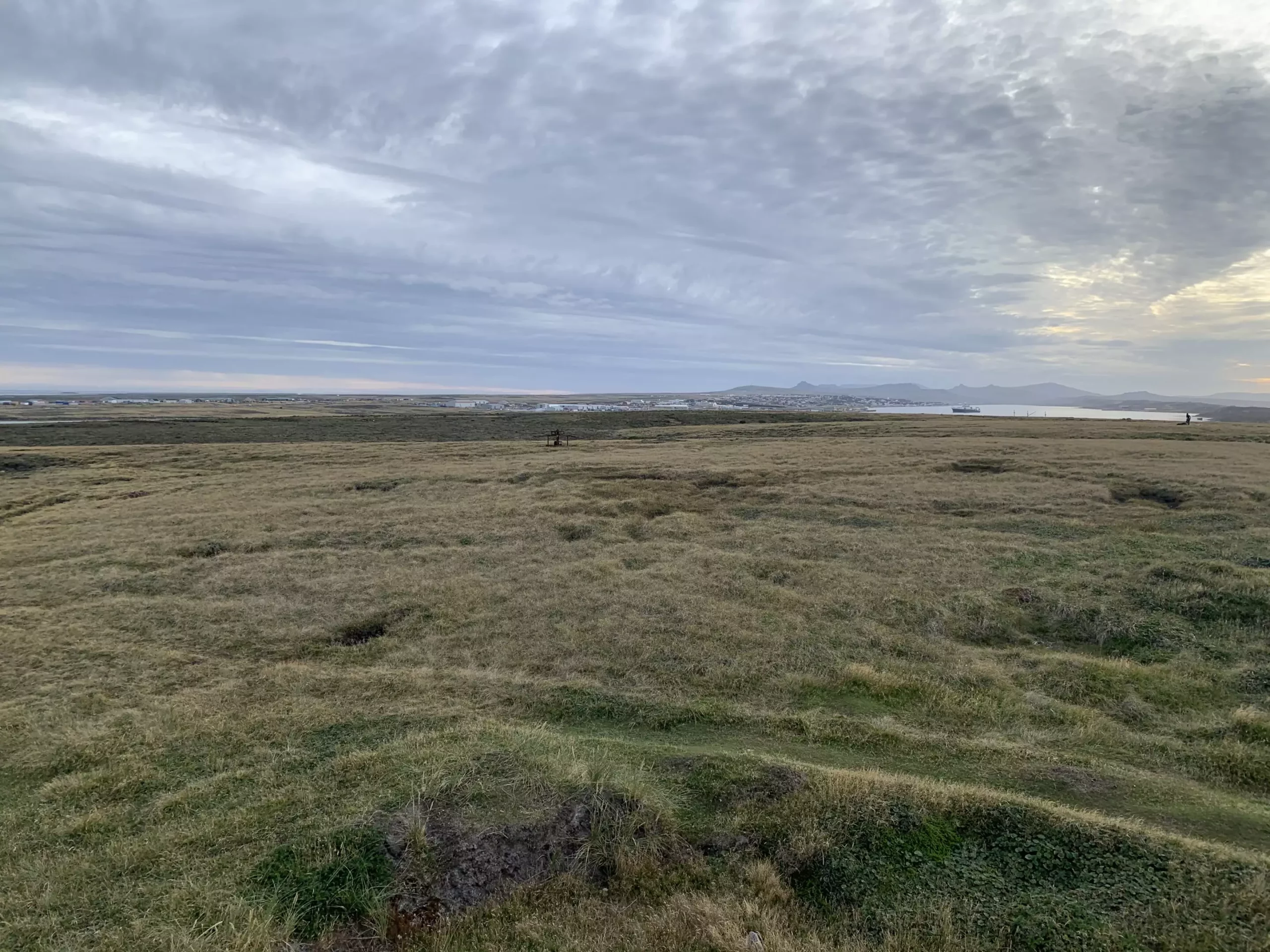Recent research led by Dr. Zoë Thomas from the University of Southampton has uncovered shocking insights into the ecological history of the Falkland Islands, revealing that what is now a barren, windswept grassland was once home to a lush rainforest. Up to 30 million years ago, this remote archipelago, located in the South Atlantic, was characterized by a diverse assortment of flora typically associated with modern rainforests similar to those found in Tierra del Fuego. This revelation not only stimulates scientific curiosity but also prompts critical questions about the climatic transformations experienced by this isolated region.
The study, detailed in the journal Antarctic Science, began rather serendipitously in early 2020. While conducting unrelated research, Dr. Thomas and her team were tipped off about the discovery of prehistoric tree remains during a routine construction project in the Falklands’ capital, Port Stanley. Such happy accidents often lead to breakthroughs in research, highlighting the value of collaboration and communication among local communities and scientists.
The foundation of this groundbreaking discovery was rooted in casual conversations within the close-knit community of Port Stanley. A local researcher learned of excavators unearthing remarkable geological formations filled with tree trunks and branches while constructing a new care home. These findings were remarkable because the current environmental conditions of the Falkland Islands—characterized by acidic soils and extreme winds—could not sustain tree growth for thousands, if not millions, of years.
Dr. Thomas emphasizes the puzzling nature of finding tree remains in such a desolate environment. “The revelation that large trees once thrived here challenges everything we know about the evolution of this region,” she asserts. With local assistance, the research team procured samples from the peat layers, a task that led them to the University of New South Wales, where advanced laboratory testing revealed clues embedded in the ancient substrate.
Due to the extreme age of these wood samples, conventional radiocarbon dating was futile. Instead, the team turned to fossilized pollen grains locked in the peat, an innovative approach that allowed them to establish the age of the forest remnants with more accuracy. By identifying pollen types indicative of specific plant species thriving in the region, the researchers pinpointed the ancient trees’ existence between 15 and 30 million years ago. This pollen analysis provided a window into the ecological dynamics of the past, illustrating a rainforest ecosystem thriving in what is now a stark and inhospitable landscape.
Understanding how these diverse species came to inhabit the Falklands also required examining the broader context of ancient climatic conditions. During the period when this rainforest flourished, the South Atlantic climate was markedly different—warmer and wetter than the present day. Prevailing winds transported seeds from southern hemisphere rainforests, facilitating the growth of thriving ecosystems on the islands. This historical interchange among ecosystems highlights the interconnectedness of climate and biodiversity over geological timescales.
The transition from the vibrant rainforest to today’s barren peats raises critical questions about climate evolution and species extinction. While the precise causes of this drastic ecological shift remain speculative, researchers theorize that significant climate changes led to drier and cooler conditions, ultimately resulting in the demise of the rainforest. This complex narrative of environmental change bears crucial implications for understanding current climate challenges facing the planet.
Dr. Thomas reflects on the serendipitous nature of this venture and its broader implications: “It’s astonishing to consider that these ancient samples were lying unnoticed beneath our feet until the community’s engagement made this discovery possible.” This statement serves as a powerful reminder of the critical role that local knowledge can play in scientific advancements.
Moving forward, the findings from the Falkland Islands present significant opportunities for research in climate science, evolutionary biology, and conservation efforts. This unique case emphasizes the importance of interdisciplinary collaboration and community engagement in uncovering scientific truths, asserting that engaging the public can yield profound insights into the natural world.
As scientists continue to analyze these ancient ecosystems, the lessons derived from the past will undoubtedly inform current and future environmental strategies. By understanding historical climate shifts and biodiversity changes, researchers can better prepare for ecological challenges in a world increasingly affected by anthropogenic climate change. The story of the Falkland Islands is thus not just about the past; it is a crucial chapter in preparing for the challenges that lie ahead.


Leave a Reply